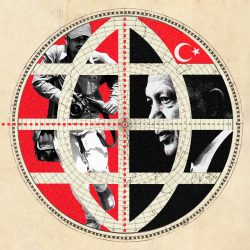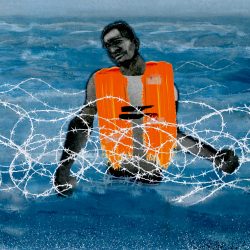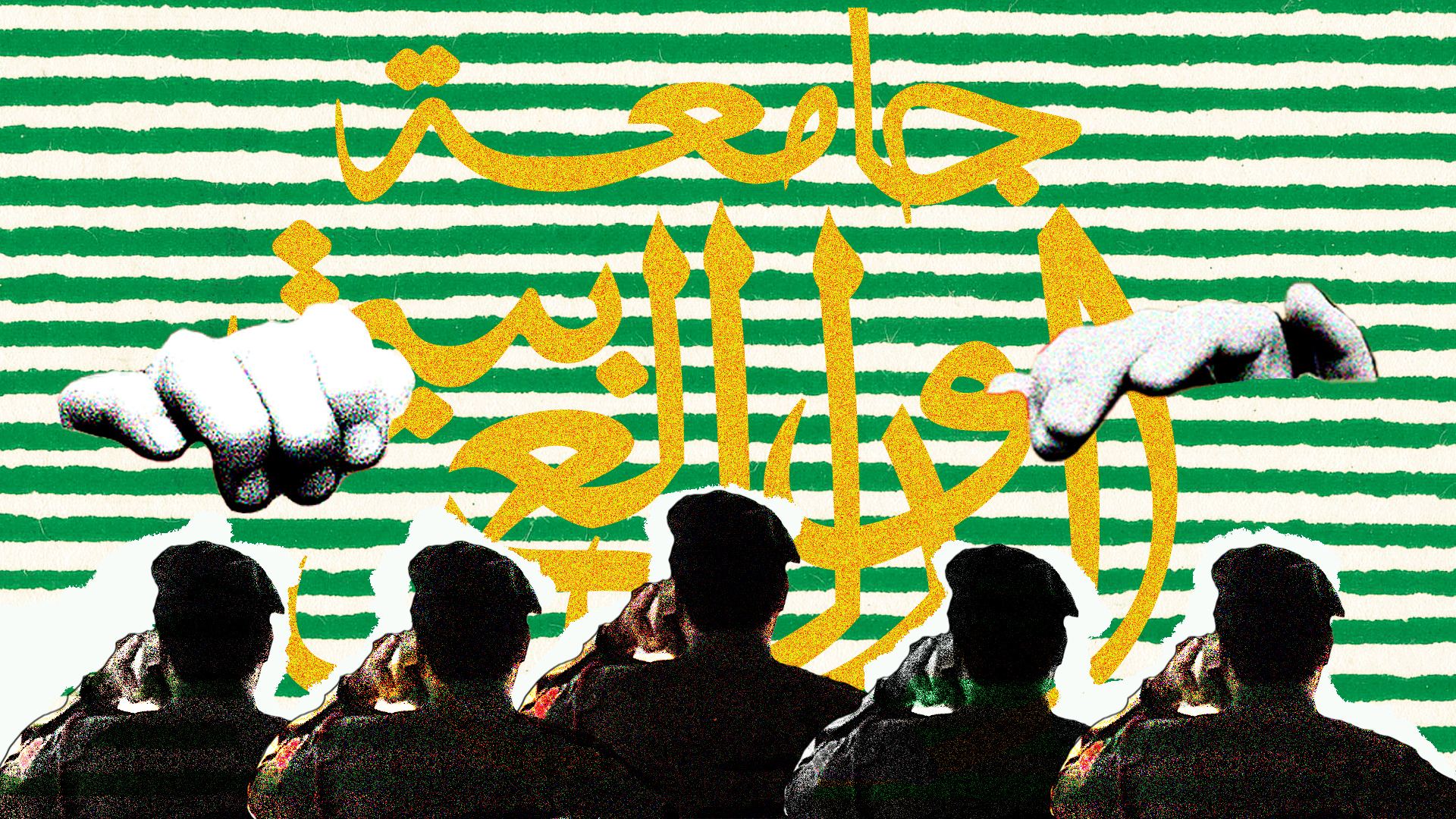
Teona Tsintsadze/Getty Images
For Arab dissidents, the walls are closing in
In November 2022, Sherif Osman was having lunch with his fiancee, his sister and other family members at a glittering upscale restaurant in Dubai. A former military officer in Egypt and now a U.S. citizen, Osman had traveled to Dubai with his fiancee, Virta, so his family could meet her for the first time.
Toward the end of the meal, Osman got up and said to Virta, “Go ahead and finish up, I’ll go vape outside.” He kissed her on the forehead and walked out the door.
When Virta came out of the restaurant a few minutes later, she saw Osman talking to two men. Initially, she thought they were talking about parking spots. Then one of them grabbed his arm and started dragging him into a car.
Virta tried to get to Osman but the car sped away, leaving her standing on the side of the road with his family.
Virta, who is originally from Finland, knew that Osman had been making YouTube videos about human rights violations in Egypt, but it was a part of his life she knew little about. Osman left Egypt in 2004 after becoming frustrated with the corruption he witnessed within the government while serving as an air force captain. He is now considered a deserter. Two years after leaving his home country, he set up a YouTube channel, @SherifOsmanClub, where he routinely criticized the Egyptian government. Today, the channel has more than 40,000 subscribers.
A few weeks before traveling to Dubai, Osman had posted a video calling for Egyptians to capitalize on COP27, the United Nations climate conference due to be held that month in Sharm El-Sheikh, to protest the state’s dismal human rights record and the rising cost of living.
In the car, Osman’s mind was spinning. When they approached a turn on the highway that leads to the international airport he began to panic, fearful that he was on a one-way trip to his grave.
“I have seen very, very, very high-ranking Egyptians that have lived in Dubai and opened their mouths with a different narrative on Egypt, and they were actually put on a flight and shipped out to Egypt,” he said, referring to former Egyptian prime minister Ahmed Shafiq, who was deported from the UAE just days after he announced he was running for president in 2017.
Osman soon realized that he was being taken to the Dubai police headquarters.
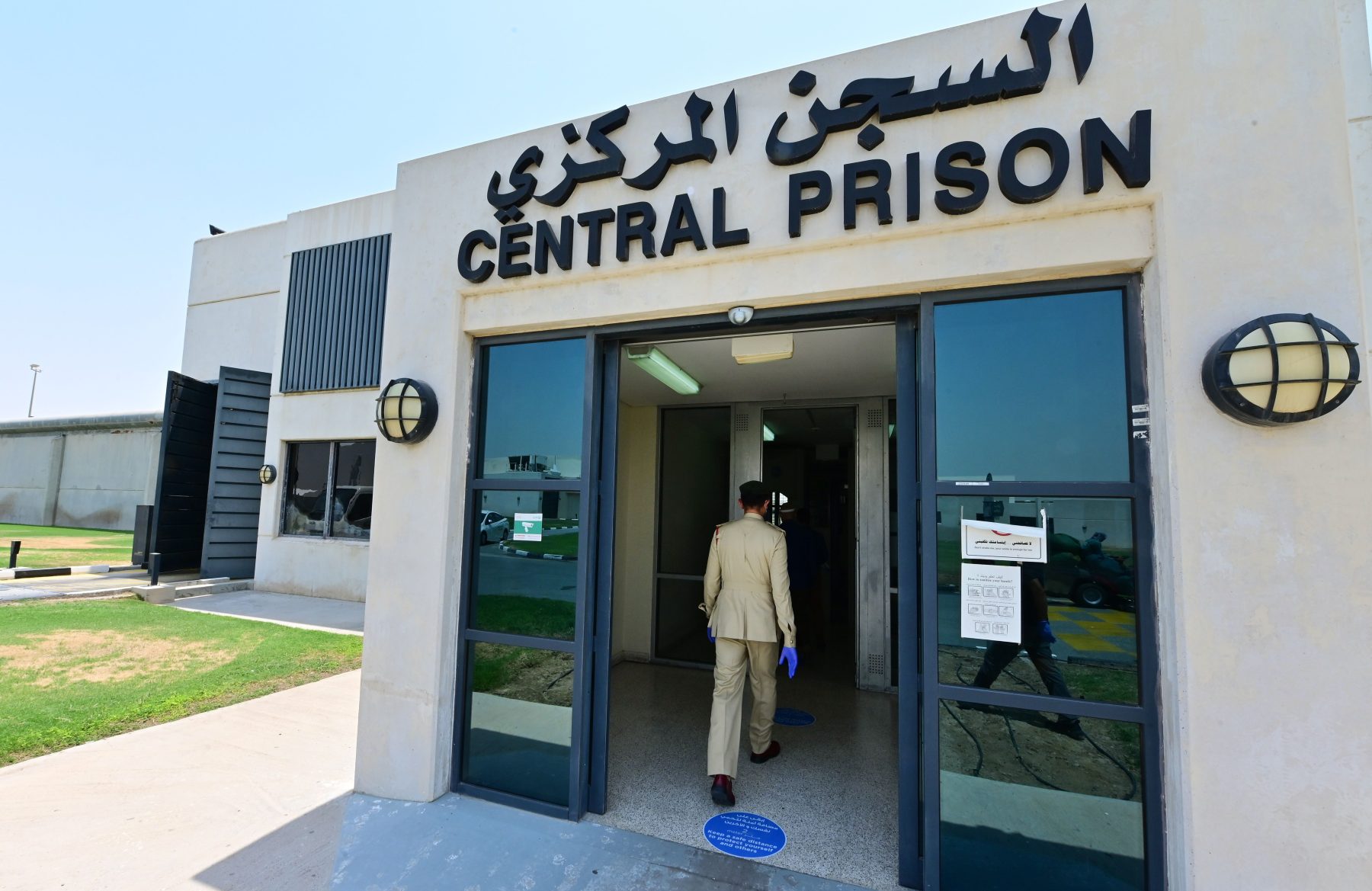
He was escorted through the back entrance of the building. Osman waited for hours while officers moved frantically around the room, giving him no information. When he asked for clarity, they told him to wait and promised to bring him coffee.
“They actually made me coffee,” he told me, laughing. Osman’s sardonic sense of humor comes out in full force when he recounts the ordeal.
Osman was eventually taken from police headquarters to the Dubai Central Prison where he was made to wait while the authorities decided if he would be deported to Egypt. On November 15, Charles McClellan, an officer in the U.S. Consulate in Dubai, told Virta that Interpol had issued a red notice and extradition case number for Osman.
A few days later, Virta sent an email to Radha Stirling in Windsor, a town in southeast England, pleading for assistance. “Sherif’s deportation to Egypt is a death penalty without a fair trial!” Virta wrote.
Stirling, the CEO of an organization called Detained in Dubai, was no stranger to these kinds of cases. Knowing that the United Arab Emirates could extradite a U.S. citizen to Egypt in the dark of night, Stirling acted quickly. She contacted the American embassy to offer advice, tried to rally support from U.S. politicians and sought media coverage of the case.
And then something strange happened. McClellan told Stirling that he’d gotten new information: According to the UAE, Osman was detained on a “red notice” issued by a less well-known organization: the Arab Interior Ministers Council. An Emirati official speaking to The Guardian confirmed the same.
When Osman learned it was not Interpol but rather the Arab Interior Ministers Council pursuing the case, his heart sank. “That’s when I was like, I’m fucked,” he told me.

A body made up of the interior ministries of all 22 Arab League states, the Arab Interior Ministers Council was established in the 1980s to strengthen cooperation between Arab states on internal security and combating crime. In recent years, it has played an increasingly visible role in extradition cases between Arab countries, particularly in cases that appear to be politically-motivated.
Experts I spoke with say that the shift has occurred as some of the Council’s member states, including the UAE and Egypt, have become notorious for abusing Interpol’s system. Although it is often portrayed in the media as an international police force with armed agents and the power to investigate crimes, Interpol is best understood as an electronic bulletin board where states can post “wanted” notices and other information about suspected criminals. Arab League states are increasingly posting red notices via Interpol in an effort to target political opponents, despite Interpol rules expressly prohibiting the practice.
Ted Bromund, a senior research fellow at the Heritage Foundation, thinks tensions surrounding Interpol may be driving increased cooperation within the Council, especially in politically-motivated cases. “My suspicion is that this Arab Ministers Council is basically a reaction to the fact that Interpol is maybe not quite as compliant or as lax as they used to be,” Bromund told me.
It was around 2018, shortly after Washington Post columnist Jamal Khashoggi, a Saudi-born U.S. resident, was murdered in the Saudi Arabian consulate in Turkey, that Abdelrahman Ayyash first heard of the Council. Ayyash is a case manager at the Freedom Initiative, which advocates for people wrongfully detained in the Middle East and North Africa.
Ayyash told me that over the past year he has identified at least nine cases in which the Council was likely involved in the extradition or arrest of political dissidents, with some of them dating as far back as 2016. In one case, Kuwait extradited eight Egyptians to Cairo in 2019 following accusations that they were part of a terrorist cell with links to the Muslim Brotherhood. Ayyash suspects their arrest and deportation stemmed from a notice from the Arab Interior Ministers Council.
In a case highlighted by other advocates from 2019, Morocco extradited activist Hassan al-Rabea to Saudi Arabia after he was arrested on a warrant that The New Arab reported was issued by the Council. Hassan’s brother Munir is wanted by the Saudi government due to his involvement in the country’s 2011 protest movement. Their older brother, Ali, is already in a Saudi prison, where he is facing the death penalty. Another of al-Rabea’s brothers, Ahmed, told me over the phone from Canada that he is now extremely careful about where he travels: “For me, like all my brothers, it is extremely scary to go to any Arab country,” he said.
Agreements enabling more extradition cooperation among Arab states and other nearby countries also are being adopted widely. In 2020, Morocco, Sudan, the UAE and Bahrain signed an agreement with Israel known as the Abraham Accords, which established official relations between the signatories. Since then, Morocco and the UAE in particular have increased their use of repressive technologies developed by Israeli companies when targeting dissidents abroad. Last year, 24% of Israel’s defense exports were to Arab Accords signatories. In 2021, Egypt signed an agreement to strengthen military cooperation with Sudan after years of tensions, including a border dispute.
Members of the Arab Interior Ministers Council are signatories to the Riyadh Arab Agreement for Judicial Cooperation and the Arab Convention for the Suppression of Terrorism, which prohibit extraditions if the crime is of a “political nature.”
Three U.N. special rapporteurs in June wrote a letter to the Arab League stating that red notices issued by the Council do not comply with member states’ commitments under international law, such as non-refoulement, non-discrimination, due diligence and fair trial.
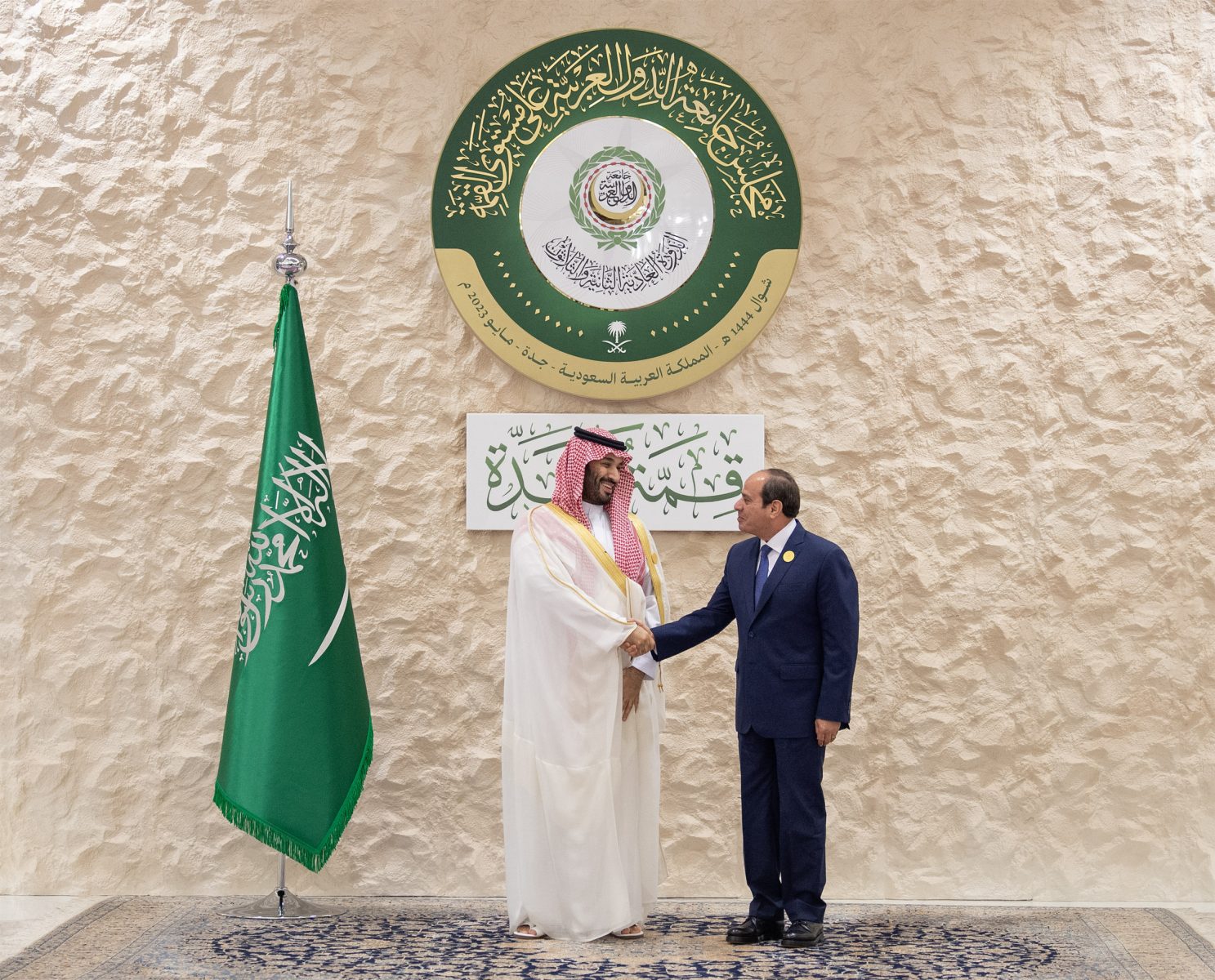
A few weeks after Osman’s arrest, Virta returned to the U.S. for her job. She adjusted her schedule to work different hours, so she could be awake for part of the night working on his release.
Behind bars in Dubai, Osman was struggling to sleep. “The second I opened my eyes my head would go numb, the exact second my eyes opened, I realized I am in deep shit,” he told me. “I can count the days that I had a full night’s sleep on one hand and have left over fingers.”
Virta was certain the UAE was going to extradite him to Egypt. But then, late one night towards the end of December, she got a call.
“I have some good news,” Osman told her. He was going to be released.
Osman was taken to the airport five days later, but it was not until the plane door closed that he allowed himself to believe he was actually going home. When the door clicked shut, he passed out from exhaustion. Osman had spent 46 days in detention.
This past July, Osman filed a lawsuit at the U.S District Court in Washington, D.C. against Interpol and its major general Ahmed Naser Al-Raisi, the UAE and its deputy prime minister, Egypt and its president Abdel Fattah El-Sisi, the Arab Interior Ministers Council, a UAE prosecutor and four other unnamed individuals. The complaint accuses them of international terrorism for their “kidnapping, abduction, imprisonment, prosecution, and threatened extradition” of Osman.
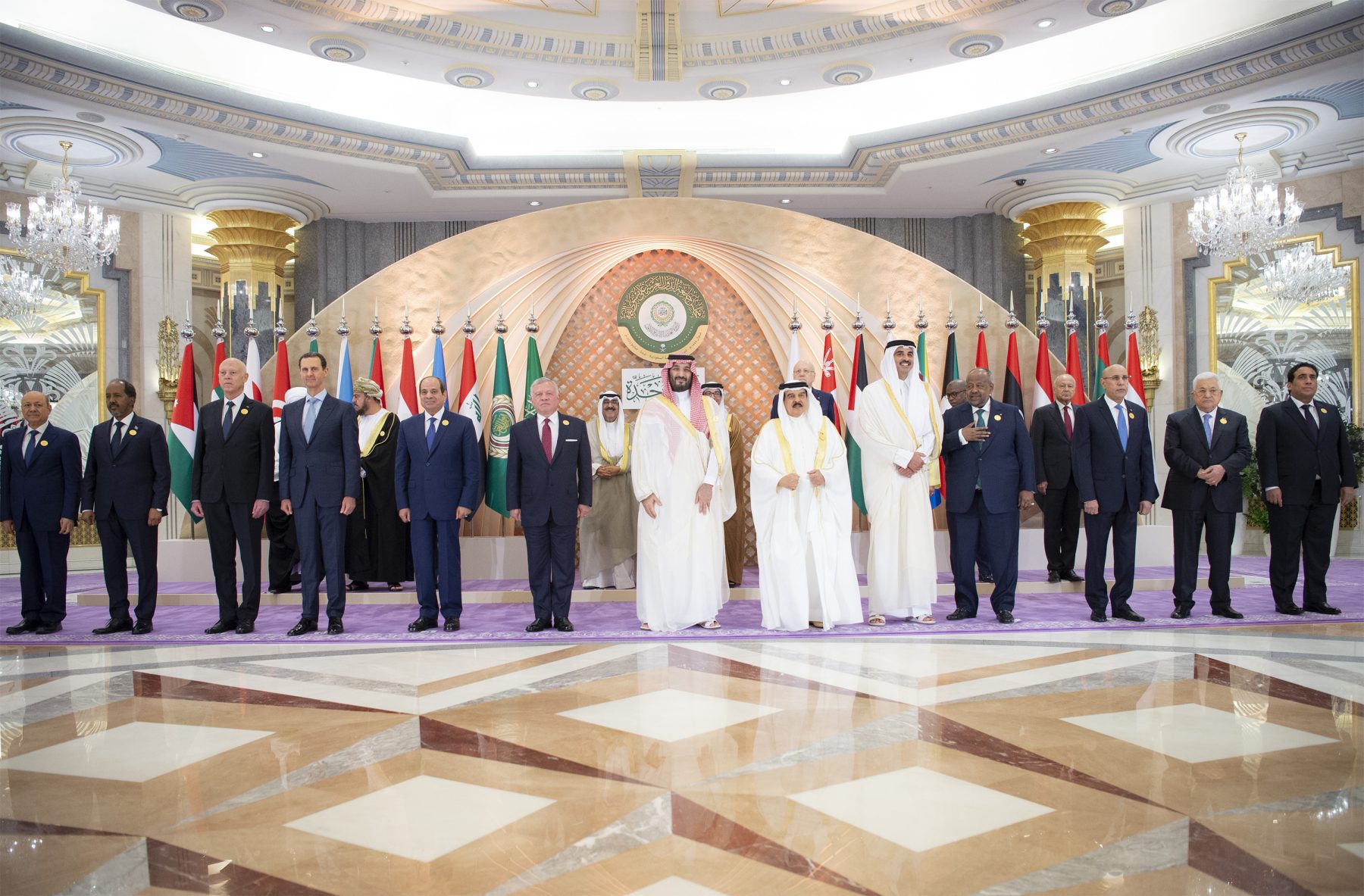
The lawsuit accuses Interpol of colluding to shift the justification for Osman’s detention from an Interpol red notice to one issued by the Arab Interior Ministers Council. An Interpol spokesperson said “there is no indication that a notice or diffusion ever existed in Interpol’s databases,” but Osman’s lawyers say otherwise.
Osman hopes that the case will push Interpol to agree to reforms, such as improving its system for reviewing cases in order to determine whether they are politically motivated. If his lawyers can prove that what the Arab Interior Ministers Council did was an act of terrorism, Osman expects this will make it much harder for Arab states to justify their participation in its functions. “Funding it would be very hard at that point,” he said, as it would effectively mean that the Arab league was funding a terrorist organization. One of Osman’s lawyers also is seeking an agreement from the UAE to stop accepting red notices for U.S. citizens by way of the Council.
Osman and Virta now live in a small city in Massachusetts, where they largely keep to themselves. “The speed limit is 35 miles and people don’t say hi to each other. It’s New England, so everybody’s an asshole,” said Osman. “There’s even a word for it: ‘Massholes.’”
He sees a psychologist who specializes in post-traumatic stress disorder. Osman says it is helping him understand what feels like a “new self.”
Osman is trying to launch a cannabis cultivation business, which missed out on some vital funding when investors heard about his arrest. He stayed quiet for six months after his release, but recently went back to posting about Egypt’s human rights record online.
“I’m back again, talking and tearing down the president and his regime and military regime without mercy,” he said. “I got the news that they are worried in Egypt about my case.”
CORRECTION (09/29/2023): An earlier version of this article described Jamal Khashoggi as a U.S. citizen. It has been corrected to reflect that Khashoggi was a U.S. resident.
The story you just read is a small piece of a complex and an ever-changing storyline that Coda covers relentlessly and with singular focus. But we can’t do it without your help. Show your support for journalism that stays on the story by becoming a member today. Coda Story is a 501(c)3 U.S. non-profit. Your contribution to Coda Story is tax deductible.






